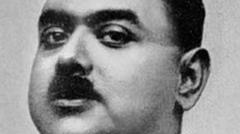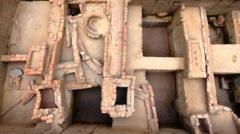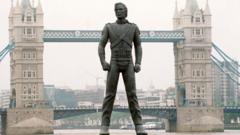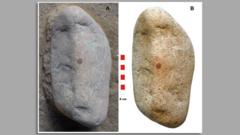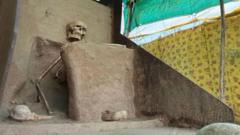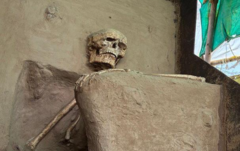In the realm of archaeology, few tales are as intriguing as that of Rakhaldas Banerjee, an Indian explorer known for his groundbreaking work that unearthed the magnificent city of Mohenjo-daro, foundational to our understanding of the Indus Valley Civilisation. Born into affluence in 1885 in Bengal, Banerjee's explorative spirit was ignited by the historical richness surrounding him, leading him to join the Archaeological Survey of India (ASI) during British rule.
From 1919 onward, he meticulously excavated Mohenjo-daro, yielding findings that spanned centuries of urban development and culture. His discovery delineated this site as one of the largest cities of the ancient Harrapan Civilization, but the acknowledgement of his work is riddled with contention. Though he revealed layers of artifacts and urban remnants from a civilization dating back over 5,000 years, Banerjee's reports never saw publication; the limelight was instead claimed by ASI chief John Marshall. Notably, professional disputes and tensions marred Banerjee's career, resulting in a significant overshadowing of his contributions.
Historians like Nayanjot Lahiri have pointed out that Banerjee's strong disposition led to disputes that hampered his career and, ultimately, his legacy. His penchant for independence sometimes crossed into insubordination, straining relationships within the ASI and culminating in a controversial dismissal. Later, he faced accusations of idol theft during a visit to a temple, which tainted his professional reputation despite the allegations being proven unsubstantiated.
After resigning from the ASI in 1927, Banerjee continued to teach until his untimely death at just 45 years old, leaving in his wake a legacy that, while significant, remains shrouded in the obscurity of his untold story. Through the lens of history, Banerjee's life reflects not only the glories of archaeological discovery but also the trials of navigating professional integrity within a colonial framework.

